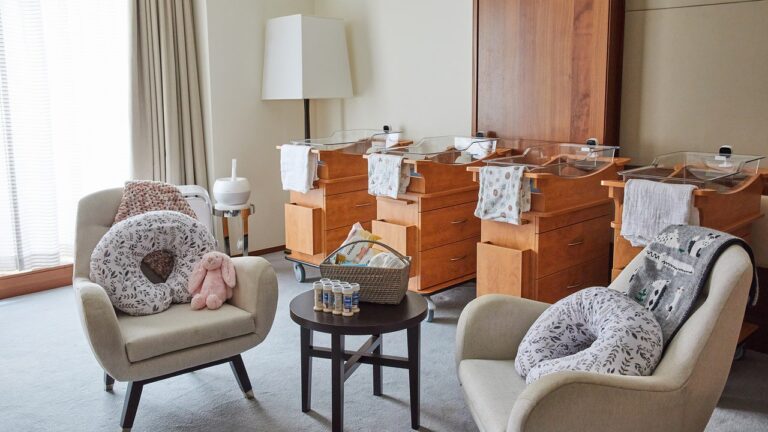
[ad_1]
Dr. Vernon is actively working within the NYU Tisch Hospital system to incorporate new programs that educate physicians about implicit bias and create postnatal support groups for Black mothers. But, she acknowledges, generally, the system is broken.
“[We need to be] educating the provider on how you can better have conversations and create a space where patients feel comfortable with you, and acknowledge that you don’t have all the answers but you want to hear the things that are going to impact their care,” she says. “Even those things can change so much related to stress and anxiety and other issues that come with pregnancy, when you just feel so out of control.”
In recent years there’s been a rise in the use of doula care, popularized at least in part by parents sharing their positive birthing experiences on social media. Like many of my millennial counterparts, I hired a doula to help manage the anxiety of navigating childbirth for the first time.
Kris Bailey, a New York-based professional birth doula, says that 90% of her clients are new parents. “I think people are realizing more how essential it is to ‘mother the mother,’” she says. “Some positive trends I’ve seen include prioritizing rest; learning about postpartum doula care and how they can be helpful in the home by providing newborn-care education and extra hands so parents can sleep. Pelvic-floor therapy is on the rise too.”
Before she became a doula, Bailey says, she wasn’t aware of the “horrifying facts” concerning maternal and infant health. “Working with families in marginalized communities, I got to experience firsthand the blatant disrespect, fearmongering, unnecessary intervention, concerns and pain being neglected.”
Nam, who is from South Korea but birthed her two children in the United States, was inspired to start Boram after having her own difficult deliveries. She also suffered from postpartum depression for two years after giving birth to her second child. “If I was able to do that even for three days, I would have been a different person,” she says of what access to a postnatal retreat center would have done for her. “I didn’t get any support. An hour after surgery, I was on my work email.”
How Do Things Get Better for Birthing Parents?
There is no federally funded paid leave in America. So for many — one in four women return to work within two weeks of giving birth — the obligation to provide for their family trumps recuperating from labor. “There were a couple of incidents [at Boram] where the mother, even with a clean bill of health, was discharged from the hospital, but they were told to watch out for their blood pressure,” Nam says. “And we find out the person’s blood pressure is really high. We strongly recommend that they go back to the hospital or see their OB.” Boram says that when these incidents happened, the facility was in a lifesaving position: “Imagine [the patient was at] home and they’re like, ‘Ah, it’s fine, I’m going to be fine.’ Nope, that’s going to be critical.”
Courtesy Boram
Courtesy Boram
The rest I got during my first night at Boram completely reset me. After spending a week in the hospital, constantly being woken from sleep for check-ins, it was physically and mentally restorative to sleep without bother. My son, although new to the world, calmly recovered from birth. I took many hot showers during those three days. I felt safe. I felt supported and cared for. Most important, I felt seen.
[ad_2]